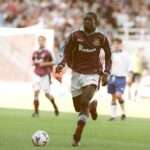Let’s face facts; by the time you get to high school, most players have given up the game. The guys who are still playing by the time they’re old enough to drive are the guys who really love the game, or are really good at it … or both. So if you’re still excelling on the diamond well into your teens, be proud, because it probably means you’re pretty darn good. But the fact of the matter is, no matter how well you do in high school, or how many travel teams you play for, only a select few players get to continue on to the highest levels. And by this I mean college or the pros.
We’ll lump college ball and pro ball together not because they’re equivalent (even the best college teams may only send a handful of players to the pro ranks each year), or because both are potential options for elite high school players (which they are), but because college recruiters and pro scouts are usually looking for a lot of the same things. Therefore you need to be aware of what it takes to impress them.
Of course scouts are going to have their eyes on the players who throw hard, run fast, and hit home runs. But you can only control so much of that. What you can always control is what type of player you are, and there are certain skills and abilities that you absolutely have to develop if you want to continue to the next level. So this is not a guide to how scouts and recruiters evaluate talent. This is a guide to a few of the most important intangible aspects of the game, skills that are just as likely to get the scouts’ attention.
Hustle
This may sound obvious (and if it does, you’re probably on the right track), but there’s nothing that turns off college recruiters and professional scouts more than a player who appears to be lazy. You’re not going to get a hit every time you step to the plate, and you’re going to make an error occasionally. You can hit a ball hard, but you can’t control whether the defense catches it. What you can control, absolutely 100 percent of the time, is your hustle.
This doesn’t just mean running hard out to the field or around the bases, which of course you should always do. Hustle is a mindset, an everyday thing. Hustle means going hard whether you’re slumping or even riding the bench. It means playing the same way whether it’s the championship game or a scrimmage with a dozen people in the stands. It means giving maximum effort before games, during games, at practice, and everywhere else.
Hustling is the easiest thing to do in baseball, because anyone can do it, regardless of talent. In other ways, it can be the hardest thing to do. It takes a special kind of player to bring intensity to everything he does. It requires a lot of discipline and hard work, and sometimes you’re simply not going to feel like hustling. But these are the types of players who get noticed, and who get to play at the next level. Whether you realize it or not, hustling will make you stand out.
Situational Hitting
This is a tricky one because, frankly, being a good situational hitter is not necessarily going to get you noticed. It also may be the most under-valued part of the offensive game for young players. Being able to hit in different situations will, almost without fail, get you playing time. Home runs are fun, but every team at every level needs guys who drive in runs, move runners, make productive outs, and consistently have good at bats.
Situational hitting means caring more about your team scoring runs than your own stats. If you’re at bat with a runner on third and less than two outs, can you hit a fly ball or use the middle of the field? Can you hit a ball to the right side with a runner on second? Can you execute a hit and run? Can you get a bunt down to advance a runner? Can you avoid striking out with runners in scoring position? Can you work counts and draw walks?
Very few of these skills will get you in the newspaper, and often, they may not show up in a talent evaluation. But one thing is for sure: coaches, scouts, and in particular, college recruiters are always looking for guys who can “play the game.” When it comes to assembling a team, it’s not always going to be about raw talent. They’re looking for players who can help them win games. Situational hitting helps win games, and it’s something you can learn to do well regardless of your batting average or how many home runs you hit.
Routine Plays
Neither professional nor college coaches have much tolerance for mediocre defense. Practicing hitting, or even pitching, may be a lot more fun than taking 200 ground balls or turning 50 double plays, but preventing runs is just as important as scoring them. Furthermore, a lot of teams don’t have the time to practice defense as much as they would prefer, so having reliable defenders becomes even more valuable. One of most coaches’ biggest pet peeves is giving away outs; when your pitcher makes a good pitch and gets a ground ball or fly ball, you have to get an out.
Many players rely solely on their hitting to get them noticed. Some have athletic talent that allows them to make amazing defensive plays. However, these can be the same players who all too often get a bad hop. The fact is that bad hops do happen. But the best fielders seem to get a lot fewer bad hops.
Make yourself a great defensive player, and you’ll give yourself a much better chance of playing at the next level. This means not only fielding the ball, but communicating on the field, throwing – accurately – to the right base, hitting the cut-off man, and making smart decisions with the baseball. Coaches want guys who can hit, but they need players who they can trust to make the routine plays.
Base Running
This is another extremely underrated, and often under-practiced, aspect of the game. Many teams don’t have the time to practice or coach the finer points of base running on a regular basis, and often end up costing themselves runs. For this reason, guys who run the bases well have a great deal of value. It’s true that blazing speed is more likely to get you noticed than strong fundamentals. However, recruiters are always looking for smart baseball players, and they absolutely notice when a player is a particularly good – or bad – base runner.
Good base running means being able to read a ball in the dirt, so you know whether you can advance. It means reading balls hit in play and knowing whether they will fall in for hits. It means being able to go first-to-third on a single. It means knowing when to be cautious or aggressive depending on the situation. It means breaking up double plays, sliding to avoid tags, and not running directly into outs. It means being able to time a pitcher and get a good jump on a steal attempt. Again, these are the skills that don’t garner much glory, but most definitely help win games.
Attitude & Practice Habits
This is perhaps the most difficult skill (for lack of a better word) to learn, because it takes a level of discipline and determination that frankly not a lot of players possess. In order to succeed as a college or professional player, you have to treat it like a full-time job. Whether that means getting up early to go to the weight room, taking extra batting practice, or simply spending extra hours on the field or in meetings, you need to approach it with constant enthusiasm.
Some of this is more noticeable to outside observers, and some of it isn’t. However, your attitude and the way you carry yourself on the field is probably more apparent than you realize. Things like showing up on time (or early!), how you wear your uniform, how you treat your equipment, how you act around coaches and umpires, how hard you work when you think no one’s watching, and how you carry yourself after you strike out or make an error are all vital parts of playing at the highest level. Having what it takes to make it in baseball entails more than just talent or baseball instincts. It is a game of precision, and the more skills you master, the more value you’ll have to a team.



